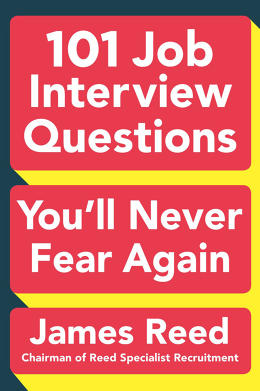How To Answer A Hiring Manager’s Inappropriate (Or Illegal) Questions
Are you married? Planning to have kids? When did you start your career? Where are you from originally? Do you celebrate any specific religious holidays?
Make no mistake: These questions are illegal to ask job candidates. But that doesn’t prevent job seekers from being asked them now and then. Your response depends on how offensive you find them and how much you still want the job after fielding intrusive queries from the person who may become your manager.
Still, few job seekers simply get up and walk out of an interview in situations like this. So it helps to be prepared to respond just in case, even if the experience does sway you against taking the job.
What employers are allowed to ask about and what they’re not is straightforward. Questions about your marital status, sexual orientation, children or intent to have them, religion, age, disability status, and country of origin are out of bounds—and, technically speaking, interviewers can get slapped with discrimination lawsuits if they ignore these rules. In practice, though, some interviewers are ignorant (or sneaky) and will ask anyway. How do you handle these uncomfortable questions?
Sometimes you’d be more than justified in bluntly telling the interviewer that their ham-fisted question is completely inappropriate. But if you still want the job after they ask, this will definitely hurt, if not completely destroy, your chances. Other times, an interview is more conversational, and you end up wandering into technically dicey territory through the seemingly innocent flow of conversation. If that happens and you’re personally not bothered by a question, go ahead and answer.

But what about the middle ground? Legalities aside (and it bears mentioning that this article is no substitute for professional legal counsel), interviewers have a genuine interest in your commitment and ability to do the job. Sometimes your personal situation does, in reality, impact that.
So how do you respond when you sense the interview is probing off-limits topics but also believe their motivation is not blatantly discriminatory (even though there’s always unconscious bias to account for, too)? Basically, the question is annoying—but not annoying enough to make you not want the job. One good technique in these situations is to address the underlying worry that’s behind the question while dodging the specific query. Here are a few examples of diplomatic responses to off-limits questions:
Q: Do you intend to have kids anytime soon?
A: I plan to keep working whether or not I decide to have a family.
Q: Will you be taking any specific religious holidays?
A: I’ve never had any issues staying within the limits of my employer’s policy on leave before, and don’t imagine that will be a problem here either.
Q: What an interesting accent! Where are you from originally?
A: My family is from [country], but I’ve been living in the U.S. for many years/since I was . . .
One final option is the blatant dodge. The subtext of this response is essentially, “That’s inappropriate and I’m not going to answer,” but the wrapping is warmer and less aggressive.
Q: Do you have kids?
A: [Pointing to a picture on the desk] I see you have two. How old are they?
If the interviewer persists despite your attempts to nudge the conversation back on track, you might want to think long and hard about whether this is really the right company for you.
Related: How To Dodge Questions About Your Salary History On Job Interviews
This article is adapted from 101 Job Interview Questions You’ll Never Fear Again by James Reed, published by Plume, an imprint of Penguin Random House LLC. Copyright © 2016 by James Reed. It is reprinted with permission.
Fast Company , Read Full Story
(40)


